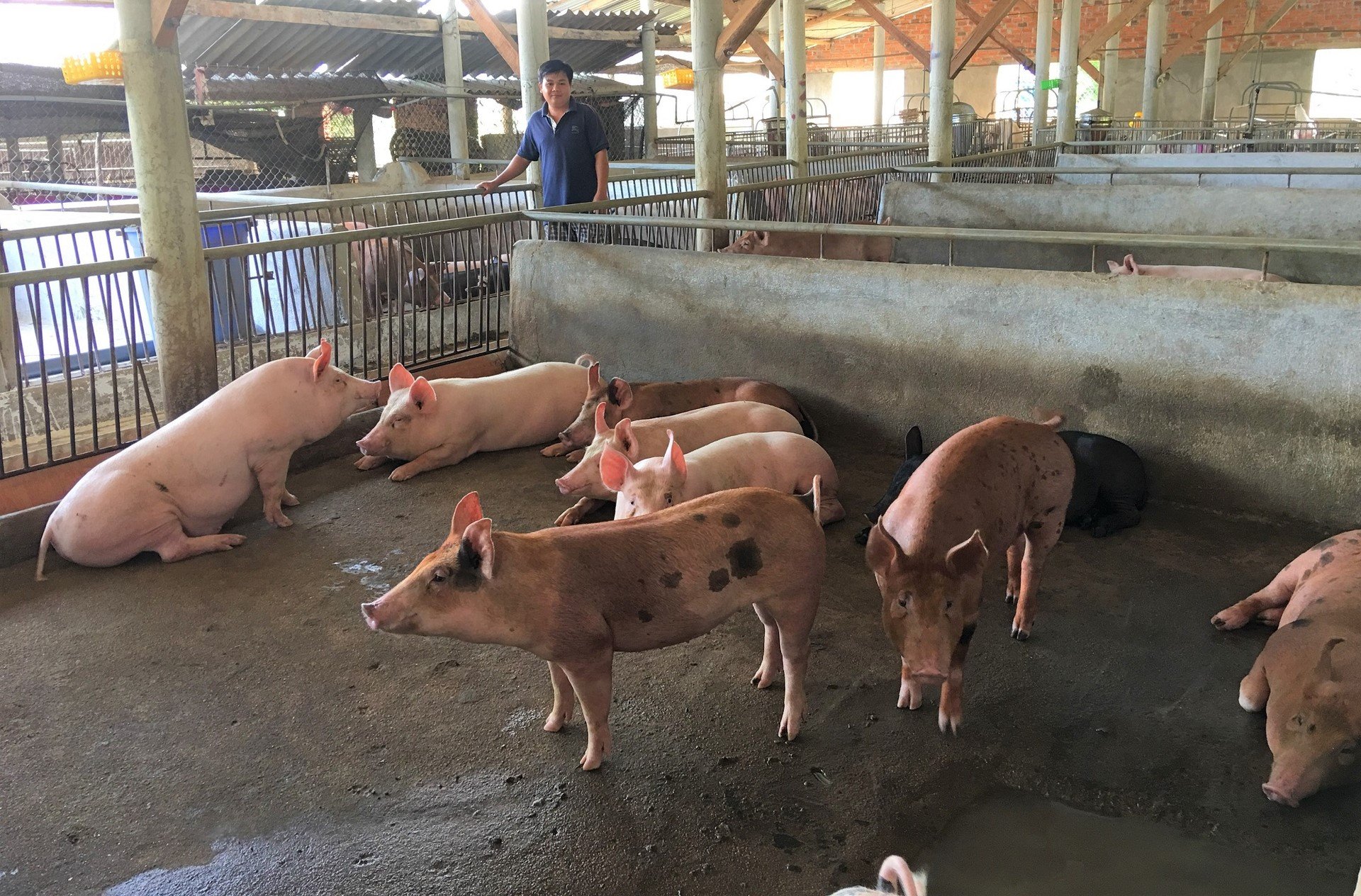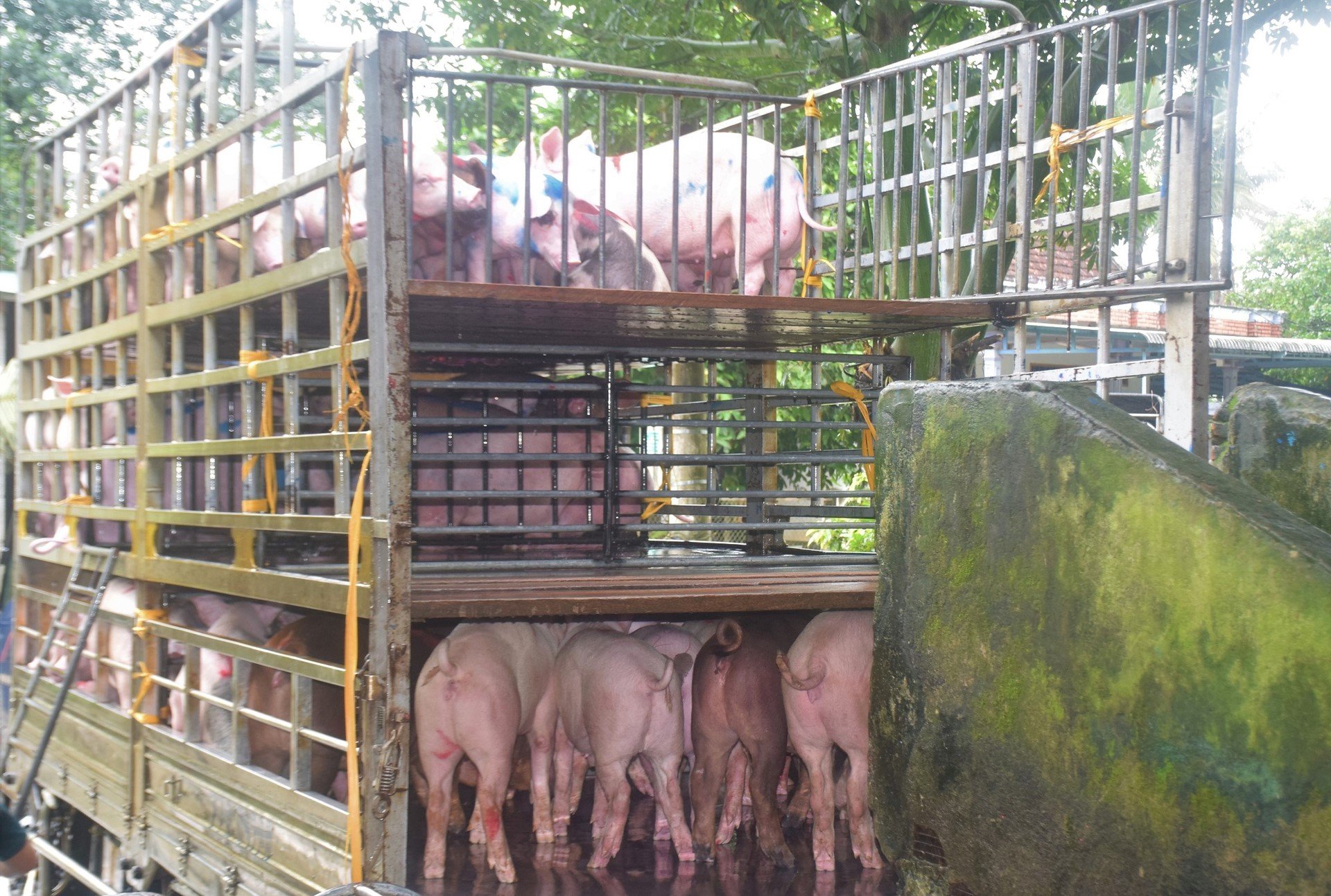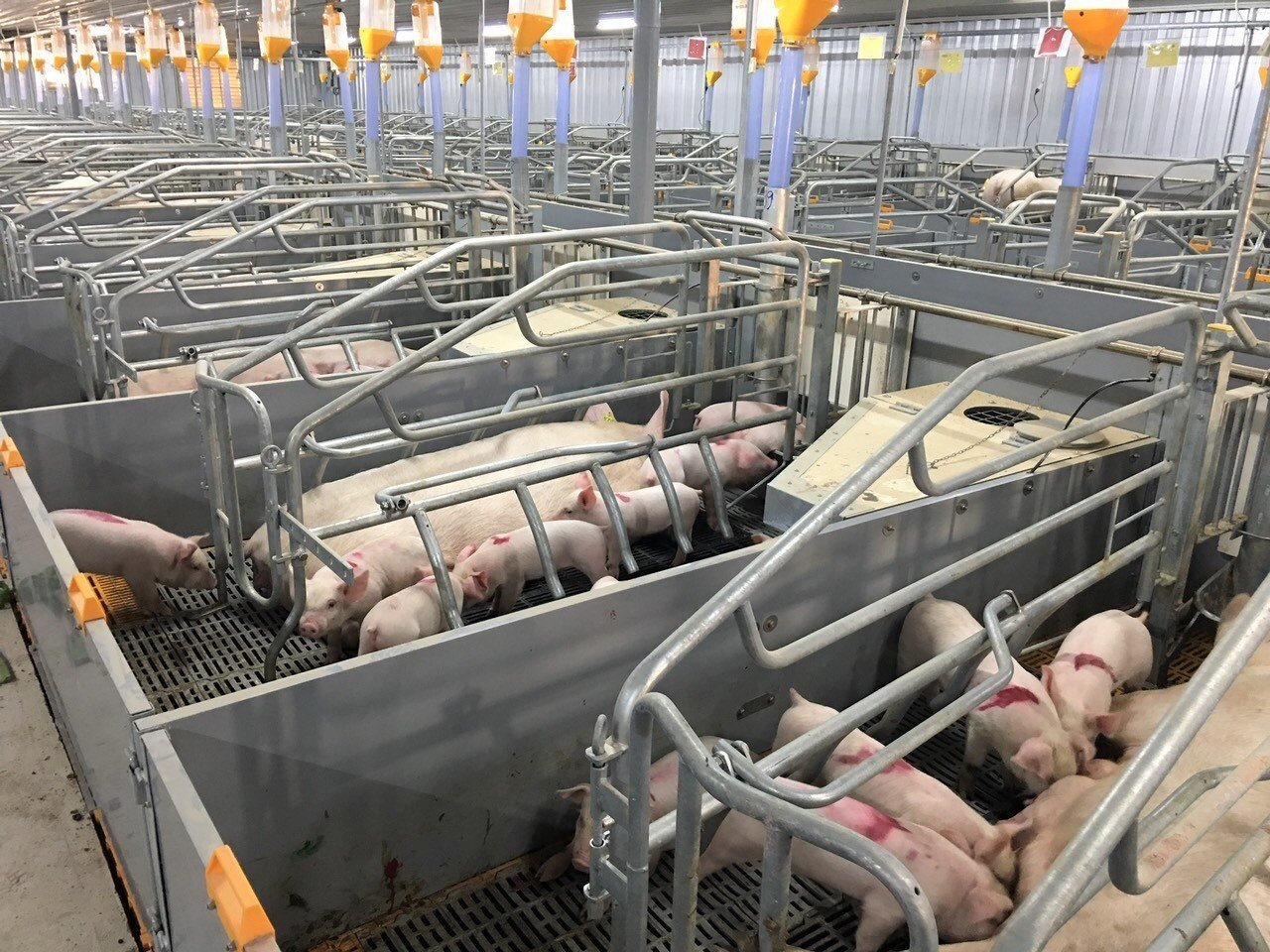June 20, 2025 | 01:18 GMT +7
June 20, 2025 | 01:18 GMT +7
Hotline: 0913.378.918
June 20, 2025 | 01:18 GMT +7
Hotline: 0913.378.918

Currently, Binh Dinh has 800 livestock facilities using livestock herd and disease management software with Blockchain technology. Photo: V.D.T.
In the early 2010s, Binh Dinh built an epidemiological map of porcine reproductive and respiratory syndrome (PRRS) and cholera in the pig herd. The map using GIS (geographic information system) technology initially supported identifying epidemic areas that had occurred in Binh Dinh and forecasting the possibility of disease transmission and emergence in localities in the province.
GIS technology has the advantage of helping management agencies have an overview of location and detailed information on livestock areas and animal slaughter, trading, and transporting points; identify points occurring diseases, radius of influence, and areas at risk of being affected on the GIS map, so that the functional branch can promptly propose effective control and prevention measures.
According to Mr. Huynh Ngoc Diep, Manager of the Binh Dinh Animal Husbandry and Veterinary Sub-Department, the GIS digital map is a particularly effective tool for veterinary management agencies, helping the functional branch control disease areas comprehensively and, at the same time, be able to compare the disease emergency at many different times.
However, in the past five years, the Binh Dinh functional branch has applied livestock herd and disease management software using Blockchain technology in the province. This is an advance in digitizing the work of disease management and control in the livestock herd in Binh Dinh province.

Blockchain technology software manages the livestock herd from farm to dinner table. Photo: V.D.T.
To effectively implement the declaration and management of Blockchain software, the Binh Dinh Provincial People's Committee directed the Statistics Office to coordinate with the Department of Agriculture and Rural Development to develop a plan to specifically assign tasks for implementing livestock herd and anti-epidemic information management software.
“The functional branch disseminates for farmers the meaning, rights, and responsibilities of participating in the program on livestock herd management and disease prevention and control in livestock farming. Livestock facilities grasp how to operate applications on smartphones to report the situation of livestock herds, diseases, consumption, and transportation; proactively and self-consciously report livestock data and disease situation at their facility," said Mr. Huynh Ngoc Diep.
Applying Blockchain technology to manage herds and control diseases in pig herds has helped the Binh Dinh livestock industry manage the total livestock herd regularly in the area, have quick and accurate information about livestock herds and livestock products, manage statistical information, and grasp the disease situation in the area to have timely and effective solutions for prevention and control.
Besides, this Blockchain software also helps the functional branch manage the application of biosafety, vaccination, and feed for pigs at livestock facilities. In particular, thanks to this software, the Binh Dinh functional branch can monitor disease-infected farms, the handling and disposal of livestock and poultry, and damage support caused by diseases to livestock facilities. Livestock facilities are provided with free software on smartphones connected to the Internet. After completing the information declaration, the system will provide management and usage codes.

Blockchain technology software manages the number of market hog, sow, and piglet herds. Photo: V.D.T.
According to Mr. Huynh Ngoc Diep, Manager of the Binh Dinh Animal Husbandry and Veterinary Sub-Department, currently, this province has 800 livestock facilities using livestock herd and disease management software with Blockchain technology, including Hoai An district (450 facilities), An Nhon town (100), Phu Cat district (100), Hoai Nhon (80), and Phu Cat district (70).
Before applying, the Binh Dinh Animal Husbandry and Veterinary Sub-Department coordinated with the Provincial Statistics Office to organize training and deploy software for the above-mentioned 800 livestock facilities. Livestock facility owners are instructed to install software, update information related to the livestock herd during the farming process, and update information related to disease epidemics.
“Blockchain technology software manages the livestock herd from farm to dinner table. The software manages the number of market hog, sow, and piglet herds. Regarding disease management, for sick pigs, farmers will report and then apply treatment procedures, from disinfecting barns to using vaccines.
This software also helps the functional branch trace the pork supply chain to the market; supports connecting consumption channels and building brands; helps management agencies grasp the number of herds and accurately update livestock data; supports disease identification and control; and controls transportation, feed, slaughter, and consumption," said Mr. Huynh Ngoc Diep, Manager of the Binh Dinh Animal Husbandry and Veterinary Sub-Department.
Translated by Huyen Vu Thu
![Turning wind and rain into action: [9] Digitizing hydrometeorological data in response to climate change](https://t.ex-cdn.com/nongnghiepmoitruong.vn/608w/files/news/2025/06/17/z6704423696987_15fd32ffc26d590d204d520c9dac6786-nongnghiep-165943.jpg)
(VAN) Farmers have begun accessing hydrometeorological applications to adjust their cropping schedules, aiming to ensure productivity and adapt to climate change.
![Turning wind and rain into action: [8] Real-time salinity detection and early warning technology](https://t.ex-cdn.com/nongnghiepmoitruong.vn/608w/files/news/2025/06/17/z6704423696987_15fd32ffc26d590d204d520c9dac6786-nongnghiep-151127.jpg)
(VAN) Thanks to the integration of modern hydrological-hydraulic models, remote sensing technologies, and artificial intelligence, the accuracy of hydrological forecasting has significantly improved.
![Turning wind and rain into action: [7] Early disaster warnings help marine farmers minimize losses](https://t.ex-cdn.com/nongnghiepmoitruong.vn/608w/files/news/2025/06/17/z6704423696987_15fd32ffc26d590d204d520c9dac6786-nongnghiep-142942.jpg)
(VAN) In recent years, thanks to early disaster warnings and forecasting, marine farmers in Khanh Hoa province have been able to reduce risks and losses, thereby improving production efficiency.
![Turning wind and rain into action: [6] ‘Four on-the-spot’ disaster management software](https://t.ex-cdn.com/nongnghiepmoitruong.vn/608w/files/news/2025/06/17/e5a48259d6a262fc3bb3-nongnghiep-183800.jpg)
(VAN) By simply activating the scenario on the disaster management software, the relevant authorities immediately know how many households need to be evacuated, where to evacuate them to, and by what means of transportation…
![Turning wind and rain into action: [5] Hue applies modern technology in disaster forecasting](https://t.ex-cdn.com/nongnghiepmoitruong.vn/608w/files/news/2025/06/17/z6704423696987_15fd32ffc26d590d204d520c9dac6786-nongnghiep-093938.jpg)
(VAN) In Hue city, modern technology has recently been applied in meteorological and hydrological forecasting and warning, helping to reduce the damage caused by natural disasters.

(VAN) A cutting-edge farming technique being implemented on an experimental ranch in Arizona's Sonoran Desert has already saved a billion gallons of water over five years, according to Civil Eats.

(VAN) Poultry and pig production and the environment can be boosted through enhanced water technology, according to new research.